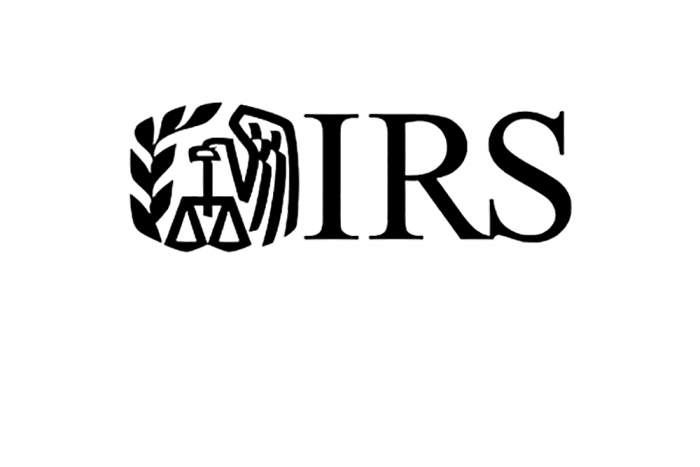Wolf Administration Provides Relief for Taxpayers Affected by COVID-19 Pandemic
ACF Children’s Bureau Amends Fingerprint Requirements & Caseworker Home Visitation Standards
In light of the extraordinary circumstances related to the Coronavirus Disease (COVID-19) pandemic and nationwide public health emergency, The Association for Children and Families (ACF) has received requests for flexibility in meeting two specific federal requirements that are addressed in this correspondence issued today from ACF.
The waiving of the actions on a state level will require an amendment to current regulatory standards. DHS has begun mobilizing discussions with policy, legal, and legislative affairs in response to the guidance from ACF.
The changes provide relief measures in the areas of fingerprint requirements for those individuals working with children, caseworker visitation in children’s homes, and the use of teleconferencing with children in their residences. These address the two major acts below.
* The fingerprint-based criminal record check requirements of §471(a)(20)(A), (C), and (D) of the Social Security Act (the Act).
* The requirement that 50 percent of monthly caseworker visits be in the child’s residence pursuant to §424(f)(2)(A) of the Act (for states only).
Amended standards
Thus, during the major disaster period, a title IV-E agency that wishes to exercise this flexibility must:
* Conduct all available name-based criminal background checks for prospective foster parents, adoptive parents, legal guardians, and adults working in child care institutions, and
* Complete the fingerprint-based checks of NCID pursuant to §471(a)(20)(A), (C), and (D) of the Act as soon as it can safely do so, in situations where only name-based checks were completed.
Also, ACF has revised the Caseworker Visits in the Child’s Residence Section 424(f)(2)(A) of the Act which requires that each state must ensure that not less than 50 percent of the total number of monthly caseworker visits during a federal fiscal year occur in the residence of the child. The Children’s Bureau identified this requirement as an administrative condition that it may modify under the Stafford Act authority.
Thus, during the major disaster period, the title IV-E agency may include the monthly caseworker visits that occur by means of video conferencing as “in the child’s residence” for meeting the requirement in §424(f)(2)(A) of the Act.
We will continue to update members on the process. If you have questions, concerns, or feedback, please contact RCPA Children’s Director Jim Sharp.
Human Services Announces CHIP to Maintain Enrollment for Families During COVID-19 Crisis
US Centers For Medicare & Medicaid Services: CMS NEWS ALERT
April 14, 2020
Here is a summary of recent Centers for Medicare & Medicaid Services (CMS) actions taken in response to the COVID-19 virus, as part of the ongoing White House Task Force efforts. To keep up with the important work the Task Force is doing in response to COVID-19, click here www.coronavirus.gov. For information specific to CMS, please visit the CMS News Room and Current Emergencies Website. CMS updates these resources on an ongoing basis throughout the day; the information below is current as of April 14, 2020 at 10:00 a.m.
Postponement of 2019 Benefit Year HHS-operated Risk Adjustment Data Validation
To facilitate the nation’s response to COVID-19, CMS is announcing the postponement of the 2019 benefit year HHS Risk Adjustment Data Validation (HHS-RADV) process. This action will allow individual and small group health insurance issuers and providers to focus on the health and safety threats currently faced by enrollees, participants, and other impacted individuals due to the COVID-19 pandemic. CMS intends to provide future guidance in the summer of 2020 on the updated timeline for 2019 benefit year HHS-RADV activities that are planned to begin in 2021. CMS previously announced a similar suspension of the Medicare Advantage RADV program.
Updated Medicaid & CHIP FAQs on Enhanced Federal Funding, Recent Congressional Action
CMS released additional guidance to states on the Families First Coronavirus Response Act and the Coronavirus Aid, Relief, and Economic Security (CARES). The Frequently Asked Questions (FAQs) address enhanced federal Medicaid funding and other topics during the COVID-19 national emergency.
CMS Approves Additional State Medicaid Waivers and Amendments to Give States Flexibility to Address Coronavirus Pandemic
CMS has approved 50 emergency waivers, 28 state amendments, 9 COVID-related Medicaid Disaster Amendments and one CHIP COVID-related Disaster Amendment in record time. States are using a toolkit CMS developed to expedite the application and approval of Medicaid state waivers and State Plan Amendments.
CMS continues to deliver urgent regulatory relief to ensure the State can quickly and effectively care for their most vulnerable citizens. CMS approved a COVID-related Medicaid Disaster Amendment that brings relief to Alabama. These approvals help to ensure that states have the tools they need to combat COVID-19 through a wide variety of state plan flexibilities. CMS continues to authorize amendments to ensure emergency flexibilities in programs that care for the elderly and people with disabilities, including most recently in Arkansas. These approved flexibilities support President Trump’s commitment to a COVID-19 response that is locally executed, state managed, and federally supported.
- Medicaid State Plan Amendments
- Section 1135 Waivers
- 1915(c) Appendix K Waivers
- CHIP State Plan Amendments
2019 Novel Coronavirus (COVID-19) Long-Term Care Facility Transfer Scenarios
CMS is providing supplemental information for transferring or discharging residents between skilled nursing facilities and/or nursing facilities based on COVID-19 status (i.e., positive, negative, unknown/under observation). In general, if two or more certified long-term care facilities want to transfer or discharge residents between themselves for the purposes of cohorting, they do not need any additional approval to do so. However, if a certified long-term care facility would like to transfer or discharge residents to a non-certified location for the purposes of cohorting, they need approval from the State Survey Agency.
DDAP Announces Hoteling Procedures for COVID-19 Positive Clients or Individuals Needing Quarantine
OMAP Announcement Regarding Transportation Program
OMAP Announcement 04-07-2020-03 is to notify all Users of the Medical Assistance Transportation Program (MATP) that during the period of the Governor’s emergency disaster announcement related to the COVID-19 Coronavirus, the use of MATP will be limited, since many routine visits are not urgent, and elective procedures are currently prohibited in certain medical facilities under orders issued on March 19, 2020 from the Governor and Secretary of Health. If you have a scheduled appointment that has not yet been cancelled, contact your medical provider to see if the appointment is necessary.
Effective April 1, 2020 and continuing through the Coronavirus emergency declaration only, the mileage reimbursement rate increased to $0.25 per mile. You do not need to do anything at this time to receive the increased rate if you travel to a Medicaid covered medical service during the emergency declaration period. As mentioned above, you are encouraged to contact your health care provider prior to traveling if not for an urgent condition.
As a reminder, this rate is temporary and only continues during the emergency declaration. The rate will return to the established rate of $0.12 per mile after the declaration has ended.
Please let your county MATP agency know if you have any questions. In the meantime, please visit the PA Department of Health’s dedicated web page for the most up-to-date information regarding COVID-19.
IRS Issues New Guidance For Payroll Tax Deferral
The IRS has issued much-anticipated guidance on the payroll tax deferral component of the CARES Act, which allows companies to defer payment on the company match of the Social Security tax (6.2%) for company payroll for March 27 through December 31. The first 50% of this deferral will need to be paid back by Dec. 31, 2021 and the remaining 50% paid back by Dec. 31, 2022. Thus, this tax deferral can be viewed as a two-year, interest-free loan that gives companies immediate liquidity.
Under the new guidance, companies that have received a PPP loan, but whose loan has not yet been forgiven, may defer deposit and payment of the employer’s share of Social Security tax that otherwise would be required to be made beginning on March 27 through the date the lender issues a decision to forgive the loan without incurring failure to deposit and failure to pay penalties. Click here for additional details.
Impacts and Opportunities for Residential Treatment Services: Join the Office Hours Series
View these valuable offerings from the National Council for Behavioral Health, SAMHSA, and the Center of Excellence for Integrated Health Solutions (COE).
Employment Law and COVID-19: Considerations for Large Employers April 17
Many employers have heard about numerous governmental regulations and programs for employers with less than 500 employees. This call is a Q&A for larger employers (more than 500 employees) and will address furloughs and time off, unemployment compensation, special considerations under the Americans with Disabilities Act, and other questions related to employment law during this time. Jeffrey J. Worley, Esq., Gibbel Kraybill & Hess LLP, will join us for this discussion for members of RCPA.
The call will take place on Friday, April 17, 2020 10:00 am – 11:00 am. Register here to participate.















